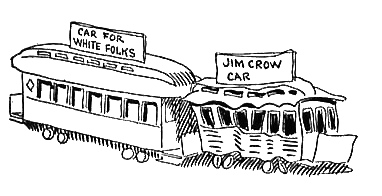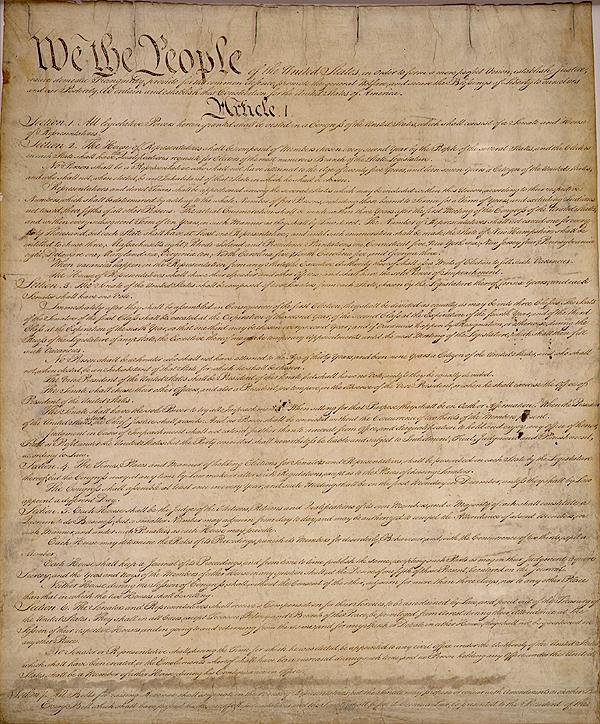SCOTUS Usurps Congressional Power
In the previous post in this series I described the thesis of Jamal Greene’s How Rights Went Wrong. He says the Bill of Rights was designed to protect the power of states against intrusion by the newly created federal government. Chapter 1 provides evidence to support his conclusion. My original plan was to go over the evidence he cites. Instead, I have a different bit of evidence.
SCOTUS didn’t mention the Bill of Rights when it listed the rights of citizens of the United States in any of the seminal cases construing the Reconstruction Amendments.
The issue of individual rights under the 14th Amendment came before SCOTUS in The Slaughterhouse Cases (1873), which I discussed here. The majority says that there is a difference between the rights which Americans have as citizens of the United States on one hand, and the rights they have as citizens of a state on the other.
The adoption of the first eleven amendments to the Constitution so soon after the original instrument was accepted shows a prevailing sense of danger at that time from the Federal power. And it cannot be denied that such a jealousy continued to exist with many patriotic men until the breaking out of the late civil war. It was then discovered that the true danger to the perpetuity of the Union was in the capacity of the State organizations to combine and concentrate all the powers of the State, and of contiguous States, for a determined resistance to the General Government.
Unquestionably this has given great force to the argument, and added largely to the number of those who believe in the necessity of a strong National government.
But, however pervading this sentiment, and however it may have contributed to the adoption of the amendments we have been considering, we do not see in those amendments any purpose to destroy the main features of the general system. Under the pressure of all the excited feeling growing out of the war, our statesmen have still believed that the existence of the State with powers for domestic and local government, including the regulation of civil rights the rights of person and of property [sic] was essential to the perfect working of our complex form of government, though they have thought proper to impose additional limitations on the States, and to confer additional power on that of the Nation.
So what does the majority say are the rights of citizens of the United States? Very few, all of which are set out in the main body of the Constitution. The majority cites several older cases, and describes each of them as saying that the rights we claim come from our status as citizens of a state.
But neither the majority nor any of the older cases point to the Bill of Rights as a source of our rights as citizens of the US. None of them say that as citizens of the United States we have a right to a jury trial, or to freedom of speech, or any other right in the Bill of Rights.
In that section of The Slaughterhouse Cases the Court says the opposite. It says that the 14th Amendment does not change the principle that our rights come from our status as citizens of a state.
As we saw in earlier posts on the Second Founding, subsequent decisions of SCOTUS including United States v. Cruikshank and The Civil Rights Cases take the same position, and strike down all of the remedial legislation enacted by Congress under the 14th Amendment to give civil liberties to all citizens including Black people. These cases led us to Plessy v. Ferguson. All of them stand for the proposition that the Reconstruction Amendments do not grant rights to U.S. citizens, and that it is unconstitutional for Congress to grant such rights.
Congress gave up trying, and nothing happened to repair the damage of slavery or bring an end to Jim Crow segregation for 70 years.
Discussion
1. SCOTUS ignores America history and its own precedents when it puts itself in charge of our rights. It wasn’t that way in 1792, and it wasn’t that way in the late 1800s. That whole thing was invented in the 20th Century as SCOTUS began to say that the provisions of the Bill of Rights applied to individuals through the Due Process Clause. The concept of due process has a legal definition, and this isn’t it. We now call it “substantive due process,” and I have never understood how it’s supposed to work. Clarence Thomas agrees, calling substantive due process a “legal fiction” in MacDonald v. City of Chicago, Thomas J. concurring.
Here’s the Wikipedia entry on substantive due process. I’m not sure I agree with it completely, particularly the pre-Civil War material. Here’s another which seems closer to what I remember from law school.
2. So where do our rights come from? In early cases under the Reconstruction Amendments, the Court says that our rights come from the states. Rights might be found in a state constitution, or in statutes enacted by state legislatures. That means there is no agreed set of rights held by all of us. It means that there is nothing significant to the idea of being a citizen of the U.S. It also means that we have to go from state to state amending laws and constitutions to protect our liberty.
In this post, I pointed to Hannah Arendt’s view of rights. She thinks that rights only exist among people living in societies that are based on equality as citiznes. In those societies rights arise from a mutual guarantee. We give each other rights, and agree to enforcement mechanisms; and we benefit by having the same rights. That certainly doesn’t point to courts as the source of rights. It points to founding documents, and to the legislature. The courts and the executive branch serve only as enforcement mechanisms.
Each of the Reconstruction Amendments expressly empowers Congress to pass legislation to enforce them. This is a power given to Congress, not to SCOTUS. The idea that SCOTUS gets to overrule the exercise of expressly authorized power by Congress is not in the Constitution or any amendment.
I note in passing that the argument in Shelby County v. Holder, striking down a critical part of the Voting Rights Act, is the dignity of the states. That’s a term cited by John Roberts, a long-time foe of the Voting Rights Act and other legislation broadening democratic rights. Dignity is very important when it comes to states limiting the right to vote, says Roberts.
In Trump v. United States, the right-wingers granted the President almost total immunity in the exercise of official duties. It said in essence that citizens can’t hold Presidents accountable civilly or criminally, and it hamstrung any enforcement that might not have been foreclosed.
That’s how we should treat Congressional actions, including legislation and investigation related to its powers under the Constitution. That’s how we get our rights. We petition Congress for rights, and if granted, they are ours without regard to what five unelected zealots scribble.



